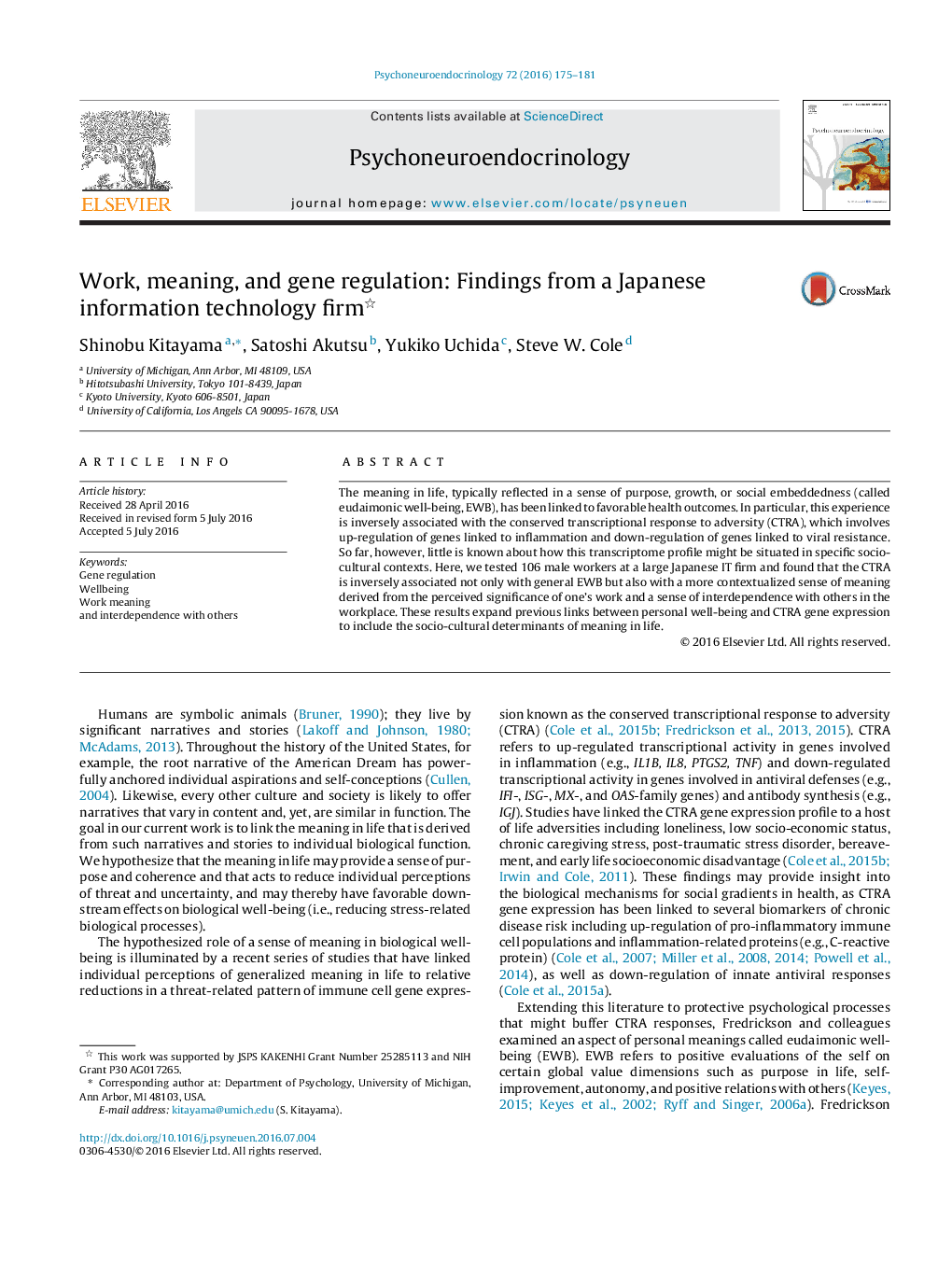| Article ID | Journal | Published Year | Pages | File Type |
|---|---|---|---|---|
| 6817995 | Psychoneuroendocrinology | 2016 | 7 Pages |
Abstract
The meaning in life, typically reflected in a sense of purpose, growth, or social embeddedness (called eudaimonic well-being, EWB), has been linked to favorable health outcomes. In particular, this experience is inversely associated with the conserved transcriptional response to adversity (CTRA), which involves up-regulation of genes linked to inflammation and down-regulation of genes linked to viral resistance. So far, however, little is known about how this transcriptome profile might be situated in specific socio-cultural contexts. Here, we tested 106 male workers at a large Japanese IT firm and found that the CTRA is inversely associated not only with general EWB but also with a more contextualized sense of meaning derived from the perceived significance of one's work and a sense of interdependence with others in the workplace. These results expand previous links between personal well-being and CTRA gene expression to include the socio-cultural determinants of meaning in life.
Keywords
Related Topics
Life Sciences
Biochemistry, Genetics and Molecular Biology
Endocrinology
Authors
Shinobu Kitayama, Satoshi Akutsu, Yukiko Uchida, Steve W. Cole,
